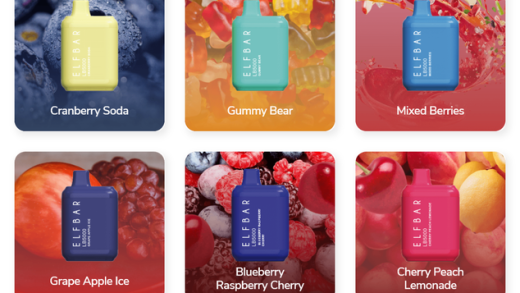A research study by The National Center for Women & Information Technology showed that “gender diversity has specific benefits in technology settings,” which could explain why tech companies have started to invest in initiatives that aim to boost the number of female applicants, recruit them in a more effective way, retain them for longer, and give them the opportunity to advance. But is it enough?
Four years ago, we launched a diversity series aimed at bringing the most inspirational and powerful women in the tech scene to your attention. Today, we’d like you to meet Lucy Nemes, Manager, Data & CX Strategy, Publicis Sapient.
Today’s Woman in Tech: Lucy Nemes, Manager, Data & CX Strategy, Publicis Sapient
 As a Data Strategist at Publicis Sapient, a leader in digital business transformation, Lucy Nemes works at the intersection of Customer Data & Experience.
As a Data Strategist at Publicis Sapient, a leader in digital business transformation, Lucy Nemes works at the intersection of Customer Data & Experience.
Together with her team, she drives the quantification of customer experience quality, the translation of data into insights, and the derivation of actions for the consultancy’s clients. A native of Slovenia, she has lived and worked in Ljubljana, Berlin, Kuala Lumpur and Miami during her career.
When did you become interested in technology? What first got you interested in tech?
I had quite some contact with technology as a child through games and different activities. But it wasn’t love at first sight. It never occurred to me to pursue a career in tech. My passion wasn’t awakened until I entered the workforce. I had the opportunity to attend some innovation conferences like CES in Las Vegas. There I was able to experience firsthand what technology is capable of and how it affects our lives. The innovation and dynamism of the industry excited me. This experience has had a significant impact on my professional career.
Let’s talk about your background. How did you end up in your career path?
As I said, I had not planned to pursue a career in the technology industry. During my studies in international business and economics, I was looking for a global company that I could write my master’s thesis with. I was given the opportunity to do so in the innovation department of Deutsche Telekom, where I also completed an internship and gained my first practical experience in the tech world.
After finishing my data & innovation-focused thesis, many doors opened, but the decision was not easy for me. While most of my fellow students went to management consultancies, I took my first professional steps at digital companies like trivago and Google. Initially, I worked as an analyst with a focus on product performance analytics, where I learned how to build and optimize digital products and use available data for innovation. I was excited by the diversity of topics, the learning opportunities, and the high-paced working environment.
After three years, I decided to try something different but stay true to the industry. I worked for a small UX agency and as a freelancer. My focus was on improving digital experiences while incorporating data-based insights. Working for clients from different industries and collaborating with diverse teams, I learned a lot. Today, this experience helps me to successfully work as a data strategist at the intersection of Customer Experience (CX) and Data.
If you want to make a career in the tech industry, it’s often not enough to “just” do your job well. You must be actively promoting yourself if you want to be heard.
Did you receive support from your family and friends? Do you have a role model?
Many people have and still are supporting my professional journey. It starts with my family, who has always supported my initiatives and ideas, even though they were sometimes risky and not conventional. Throughout my career, I have always actively looked for mentors to share ideas with.
At my current employer, Publicis Sapient, I have found a strong network of competent colleagues who support me in word and deed. The company’s culture and mindset of colleagues make it easy to approach anyone, get feedback, discuss various topics, and continuously learn. I also follow various tech industry personalities on digital platforms to find inspiration and stay up to date. For example, I regularly listen to the podcasts The Prof G Pod with Scott Galloway, Pivot, My Data is Better than Yours, Exponent, and Note to Self.
Did someone ever try to stop you from learning and advancing in your professional life?
Starting and growing a career in tech was not easy – the environment is competitive, dynamic, requires dedication, and on top of that, predominantly male. I don’t recall anyone putting obstacles in my way. However, no one would actively speak up for me either, especially at the beginning of my career when I was still very insecure and shy. At the time, I believed that the quality of my work spoke for itself and that I would be successful based on results alone.
If you want to make a career in the tech industry, it’s often not enough to “just” do your job well. You must be actively promoting yourself if you want to be heard. This can be challenging. I had many (predominantly) male colleagues who climbed the career ladder faster because they were more confident in sharing their work successes and voicing opinions. Especially at the beginning of my career, I often struggled with that. Today, I am more confident. I am very grateful to my mentors, who have continuously assured me about the excellent quality of my work and helped me gain confidence to overcome my insecurity.
A day in Lucy’s life
I work as a data strategist at Publicis Sapient, a leading digital business transformation company. My focus is on the intersection of CX and Data. With my team, I consult clients on the strategic use of data and help them identify new business opportunities by leveraging state-of-the-art analytics and Artificial Intelligence. That includes assessing the clients’ data & analytics capabilities, supporting them on their journey toward greater data maturity, as well as identifying and accompanying the implementation of value-driving use cases & data products.
My role requires close collaboration in cross-functional teams. I work with Data Scientists, Developers, Product Owners, and UI/UX Designers, among others, and drive the communication between business and technology stakeholders. Our clients are usually on distinct digital transformation journeys with unique set-ups, which means that my work is never repetitive.
Could you tell us about a project you have developed or started?
The nature of my work and my clients’ challenges require continuous development of how we work. New trends shaping user behavior, new measurement possibilities as well as new regulations require innovative thinking, especially at the intersection of CX & Data. I’m continuously developing tailored tools to address these and improve how we work. For example, I have noticed that many companies struggle to measure the Experience and quantify its impact, even though they collect a lot of data. So, I have developed a measurement framework that helps them measure the quality of the Experience and quantify its contribution to the client’s business goals.
Why aren’t there more women in tech? What’s your take on that?
The tech industry can be a bit overwhelming. It is very competitive and heavily influenced by its history. The industry has been and continues to be dominated by men and has evolved around male ways of thinking and working. It’s no surprise, then, that many technology companies lag behind when it comes to gender equality. To make the change, it is imperative to create a work environment and culture that meets the demands of women.
Attracting female talent requires action at all levels, starting with hiring and marketing. Many women are not aware of the extensive career opportunities available in the technology industry. The more diverse the work environment becomes with more women, international talent, or employees from the LGBTQ community, the more attractive it becomes. While the industry has made some progress in this regard, it undoubtedly still has a long way to go.
What stereotypes have you encountered regarding women in tech? What problems does this create?
Women are often labeled as emotional, shy, or not focused enough because we tend to discuss topics that seem unimportant to some. However, I believe that emotions and empathy are the key ingredients when creating user-friendly & -centric products and services. If we aspire to build products for all humans, then diverse perspectives are necessary in every step of development. That starts with gathering the data, analyzing & clustering needs, developing usable and assessable solutions, good marketing, and after support. The lack of these perspectives is the gap that we are witnessing in many aspects of our lives, not only in the tech industry. Far too often, we’re dealing with products and environments designed by men for men.
A cultural change that enables diversity and inclusion is urgently needed if we wish to create a more balanced working environment.
Would our world be different if more women worked in STEM? What would be the (social, economic, and cultural) impact?
Despite the hurdles women face in the technology industry, I highly recommend getting started. The work can be very fulfilling and offers a wide range of development opportunities. My job is innovative and impacts peoples’ lives – how they do things or spend their time. I believe that more women and more diversity in general will have a positive impact on the industry. Diversity can contribute to a more empathetic work environment, build trust, and inspire new ways of working, which in turn improves employee retention. More diversity enables us to achieve more inclusive outcomes. After all, how relevant can innovations be if they do not even consider the needs of half the population?
What does the future hold – will the diversity debate soon be history?
I feel that the discussion about diversity in the tech industry is still not loud enough. Not everyone is aware of the urgency that things need to change if we want to become more inclusive. The slow progress in this otherwise dynamic industry shows that action is overdue. While I hope this debate is soon a thing of the past, I doubt it will happen quickly. A cultural change that enables diversity and inclusion is urgently needed if we wish to create a more balanced working environment.
What advice (and tips) would you give women who want a tech career?
Don’t let self-doubt get in the way and go for it. The tech industry offers great opportunities to develop yourself and be creative. I can’t stress enough how happy I am about my career decision. In all my previous positions, I found my job very satisfying. I enjoy working with inspiring colleagues daily. Of course, being a minority in any area always comes with some challenges, but for me as a woman in the tech industry, the benefits clearly outweigh the negatives.
More Women in Tech:
- Women in Tech: Dawn Glamm, senior vice president of engineering and operations, NS1
- Women in Tech: Alexandra Matthiesen, Vice President of Marketing, CodeSee
- Women in Tech: Elise Morse, Vibration Analyst at Augury
- Women in Tech: Hamida Rebaï Trabelsi, Senior Cloud Application Architect at Revenu Quebec
- Women in Tech: Rafaela Ferro, frontend engineer at SingleStore
For even more Women in Tech, click here
The post Women in Tech: “Don’t let self-doubt get in the way and go for it” appeared first on JAXenter.
Source : JAXenter















